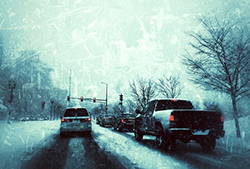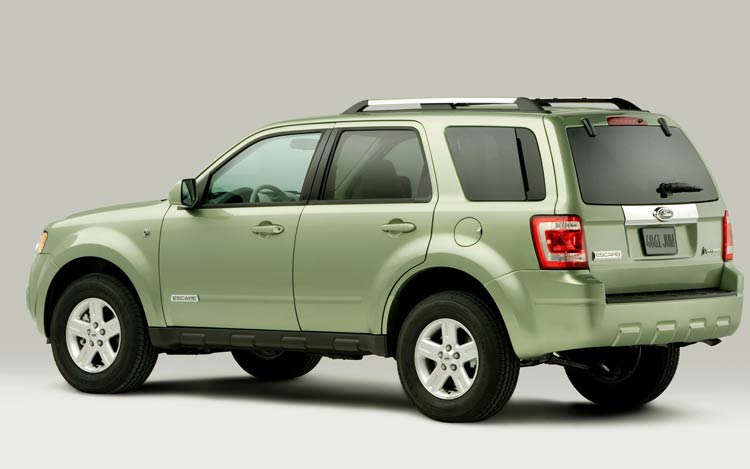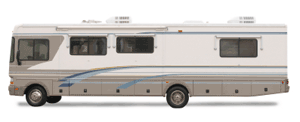11 months ago
·
by
Erin Carlson ·
0 comments
 Millions of Americans take to the water each year during boating season, traveling the coastlines, rivers, lakes and canals. The watercraft range from simple rowboats to jet skis to small motorboats to luxury yachts. Boat owners spend significant amounts of money buying and maintaining their boats.
Millions of Americans take to the water each year during boating season, traveling the coastlines, rivers, lakes and canals. The watercraft range from simple rowboats to jet skis to small motorboats to luxury yachts. Boat owners spend significant amounts of money buying and maintaining their boats.
The need for insurance protection when the boat is on the water is obvious, but many boat owners question the need for it during the off-season. However, insurance is just as important when the boat is in storage as when the owner is using it.
A typical Boat insurance policy provides a package of coverages, including:
- Damage to the boat, motor, and trailer
- Damage to portable property used in the maintenance and operation of the boat, including things like anchors, life jackets, oars, tools, skis and surfboards, lights, and fire extinguishers
- Damage to other types of property, including sports equipment, clothing, and other personal effects
- Damage to equipment on shore, such as boat covers
- The cost of recovering a sunk or stranded boat
- The cost of emergency service and towing
- Damage to non-owned or substitute boats
- Loss of fishing tackle
- Liability coverage for injuries or damages for which the boat owner is legally responsible
- Coverage for injuries the boat owner or others on the boat suffer in an accident with an uninsured watercraft
A boat owner will need these coverages if their boat gets into a collision with another boat, or if thieves steal scuba gear from it, or if fire damages the motor. However, losses are still possible while the boat is out of the water. Progressive Insurance reports that nearly two out of every 10 boat claims it receives from northern states occur between Labor Day and Memorial Day, when most owners are not using their boats much.
Some examples of losses that could occur:
- The building which houses the boat during the winter burns to the ground.
- Vandals damage the boat in the middle of the night while it’s in the owner’s driveway.
- A neighbor’s child, playing in the owner’s yard, runs into the boat stored there and injures his head.
- Someone steals the boat and its trailer from the yard at a repair shop.
- While the boat is stored in the yard, heavy snow melt causes a flash flood that damages the boat’s interior, including the mechanical system and the radio.
Some insurance companies offer “disappearing deductibles,” where the deductibles for collision and damage losses from other causes decrease by a certain amount for every claim-free year. Those companies will grant this benefit only to boat owners who keep their insurance continuously in force with them.
One of our insurance agents can provide advice on the types and amounts of coverage a boat owner needs. We can also recommend insurance companies that have expertise in boating, good claims-paying practices, and reasonable prices. Insuring a boat all year round can be expensive, but compared to the cost of a large uninsured loss, it may well be worth the cost.
Read more
Whether you’re driving in the summer or winter, you want to maximize your vehicle’s gas mileage. Cold weather can reduce your vehicle’s fuel economy, though. Use these tips to maximize your gas mileage this winter.
Why does Winter Fuel Economy Fall?
When temperatures drop from 70 degrees F to 20 degrees F, your vehicle’s fuel economy can drop by as much as 12 percent. Short trips of less than four miles also cause a fuel economy loss of as much as 22 percent. If you drive a hybrid vehicle, you could experience a 34 percent drop in fuel economy.
These drops occur for several reasons.
- The engine takes longer to reach a fuel-efficient temperature, a factor in fuel economy during shorter trips.
- Idling reduces overall fuel economy.
- Window defrosters, the heater fan and heated seats require extra power.
- Tire pressure decreases, which increases your vehicle’s rolling resistance and reduces fuel economy.
- Cold engine and transmission fluids increase friction.
- Battery performance decreases and affects the battery charge.
- Cold air and snow mounds on your vehicle create a higher aerodynamic drag as you drive at highway speeds.
- Winter grade gasoline blends are lower in energy than summer grade gasoline blends.
- Severe weather reduces tire grip and wastes energy, and slower but safer driving practices lower fuel economy.
How can you Improve Fuel Economy?
If possible, take several proactive steps that increase your vehicle’s gas mileage.
- Park in a garage or other warm location to increase your engine and cabin temperature and reduce the amount of time and effort required to warm the vehicle.
- Allow your vehicle to idle for only 30 seconds. It will warm up almost two times faster and use less fuel as you drive.
- Use defrosters and seat warmers only when necessary. An ice scraper and warmer clothing can help.
- Choose winter tires with low resistance and keep them inflated to the proper pressure as you improve traction and fuel economy.
- Use the cold weather oil recommended by your vehicle’s manufacturer.
- Charge your battery before winter at an automotive store, car dealer or your mechanic.
- Remove accessories like the luggage or ski rack plus accumulated snow since these factors increase wind resistance and reduce your vehicle’s aerodynamics and fuel economy.
- Toss sandbags into the trunk to increase traction.
- Complete as many errands as possible in one trip. Also, check the traffic before your trip and avoid congested or slow areas.
This winter, your car may use more fuel than usual, but you can maximize your vehicle’s fuel economy with these tips.
Read more
 Whether you drive a vehicle that’s hot off the assembly line or one that’s old enough to be an antique, you want your car to last a long time. A fall tune-up helps you achieve your goal. It also maximizes fuel efficiency, prevents expensive repairs and ensures your vehicle runs properly all winter.
Whether you drive a vehicle that’s hot off the assembly line or one that’s old enough to be an antique, you want your car to last a long time. A fall tune-up helps you achieve your goal. It also maximizes fuel efficiency, prevents expensive repairs and ensures your vehicle runs properly all winter.
Read the Owner’s Manual 🙂
In the back of your vehicle’s owner’s manual, you’ll find a tune-up checklist. Follow it carefully as you ensure you repair and inspect all the essential areas of your vehicle this fall.
Fix the Brakes
Your mechanic should inspect the brakes for wear and ensure the brake lights on your vehicle work properly.
Change the Oil
Your vehicle’s engine requires engine oil as it operates smoothly. Top off the oil this fall or invest in a complete oil change, especially if you’ve driven 15,000 miles since your last oil change.
Check the Battery
Wipe off the terminals and make sure the battery is attached correctly. If it’s older than four years, replace it so that you’re not left stranded. Spray some battery protector.
Inspect Hoses
Soft, leaky or loose hoses seem like a small detail, but they’re important for proper engine performance. Inspect all your engine’s hoses to ensure they’re attached properly and replace any that aren’t in good working order.
Top Off Fluids
Low transmission fluid and coolant affect your vehicle’s performance and could damage the engine. Top off these fluids this fall. You’ll also want to fill your windshield washer fluid and the antifreeze reservoir.
Inflate the Tires
You’ll experience a smoother ride and enjoy increased traction when you inflate the tires to the proper level. Find the recommended tire pressure on your vehicle’s door sticker. Tire pressure can reduce slightly in the cold, and your tire pressure sensor (TPS) can sound a false alarm.
Update Insurance 🙂
Now that your car is tuned up, update your auto insurance, too. Make sure you have adequate coverage to handle any repairs or liability that may occur during a winter storm or after an accident. With these tune-up tips, you prolong the life of your vehicle.
Read more
 More people are traveling to the national parks (that are open) . It helps with social distancing, but also as the weather gets warmer people want to get outdoors. The stay at home period is over and with the measured opening, relaxing of travel and economic restrictions more Americans are hitting the road with their recreational vehicles.
More people are traveling to the national parks (that are open) . It helps with social distancing, but also as the weather gets warmer people want to get outdoors. The stay at home period is over and with the measured opening, relaxing of travel and economic restrictions more Americans are hitting the road with their recreational vehicles.
Your RV is your pride and joy – whether you live in it year round or just take it out a few times a year for those on-the-road getaways. It also represents a significant investment that needs protection against damage or financial risk.
Depending on your needs, you can buy coverage on your RV either as an add-on to your standard Personal Auto insurance or as a separate Recreational Vehicle policy. Either way, since the vehicle is also a home on wheels, it faces a variety of exposures:
- Damage to the vehicle from fire or collision
- Theft
- Liability for injury to third parties from an accident
- Loss of or damage to possessions inside the vehicle (for example, an expensive sound system, laptops or tablet, flat screen TV or other portable valuables). To estimate this exposure, you should take an inventory of these expensive items and list their replacement cost.
- Loss or damage to such external elements as satellite dishes or antennas (some insurers might require separate coverage “riders” on these).
Also, bear in mind that some RV policies have an annual mileage limit, which probably won’t be a concern if you only use your vehicle a few times each summer. However, if you’re on the road year round, you’ll need to consider the impact of this limitation.
If you have any questions on the amount and type of RV insurance you’ll need, feel free to get in touch with us.
Read more
 Labor Day is coming soon — which means that you might have children who will be heading off, or back, to college soon. Together with the many lifestyle changes that they (and you) will be making in this time of transition, remember that it’s also important to give your insurance a tune-up.
Labor Day is coming soon — which means that you might have children who will be heading off, or back, to college soon. Together with the many lifestyle changes that they (and you) will be making in this time of transition, remember that it’s also important to give your insurance a tune-up.
A recent industry report recommends considering these types of insurance when Johnny or Sally leaves the nest:
- Auto: Your family coverage will cost less if your student doesn’t take a car. Also, if your child keeps a B average or higher, you might receive a discount.
- Housing: If the child happens to live in a dormitory, your Homeowners insurance might protect them.
- Health: Your child is eligible to receive health benefits through your plan — as long as they’re unmarried, remain in school full time, and are younger than 26 (under the Affordable Care Act) Once they exceed this age, you’ll need to obtain coverage for them from your employer.
These are general guidelines, so please consult with us to make sure you have the right protection at the best possible price. Even if your child already is at school, give us a call and we can make adjustments if needed.
Read more

If you’ve ever shopped around for insurance, you’ve likely been asked if you want to bundle your policies—in other words, combine your home or renters, auto and life insurance policies with the same carrier. Although you have the option to shop around individually for each policy, it almost always makes sense to have the same carrier cover as many of your policies as possible.
Benefits of Bundling
- The discount—Most policyholders bundle their policies because of the promise of a discount. The amount varies by provider but can generally range between 5-25 percent.
- The option of a single deductible—With bundled policies, your deductible may be cheaper in the event of a claim that affects multiple policies. For example, if your home and auto policies are with two separate carriers, and a hailstorm damages your home and your car, you’re responsible for paying both your home and auto deductibles before receiving payment. But if you bundle your policies, your provider may offer you the option to pay only the higher of the two deductibles.
- Less chance of being dropped—If you’ve made claims or gotten tickets, having your policies bundled with one provider can decrease the chance of them dropping you.
-
When it Doesn’t Pay to Bundle
It isn’t always better to bundle your policies with one insurance carrier. Here’s when it may be better to split them up:
- If you have tickets or past claims that make your auto insurance expensive—In this case, it may be cheaper overall to buy each policy from separate providers.
- When premiums increase—Bundling discourages people from price shopping, which makes it easier for providers to increase their rates. Most assume that you won’t go through the effort of shopping around when your policies renew.
- If policies aren’t technically bundled—Some carriers may insure you with an affiliated company. Although you may get a discount with that company, you’ll lose the convenience of paying your premium with one familiar provider.
A Few Tips to Consider
Although discounts are the main reason people bundle their insurance policies, never assume that bundling is the cheapest option. Your needs and circumstances will dictate whether you should combine your policies with one carrier. Consider the following tips:
- Shop for new coverage when your policies renew, and ask for the price of the individual premiums as well as the price of the bundled premium so you can decide whether it is worth it. Just make sure you compare the same coverage when shopping for quotes from each carrier.
- Ask if the provider uses a third-party insurance company. Remember that you may save money but lose the convenience of dealing with one provider and a combined bill.
- Ask an independent insurance agent to get prices from multiple companies so you don’t have to do the legwork. An agent that is loyal to a particular carrier may be able to offer discounts that you can’t get alone.
With multiple factors contributing to the price of your insurance premiums, it is important to shop around in order to get the best rate for your insurance needs. Feel free to contact Scurich Insurance to determine if bundling is right for you and help you take advantage of all available discounts.
Read more
 Millions of Americans take to the water each year during boating season, traveling the coastlines, rivers, lakes and canals. The watercraft range from simple rowboats to jet skis to small motorboats to luxury yachts. Boat owners spend significant amounts of money buying and maintaining their boats.
Millions of Americans take to the water each year during boating season, traveling the coastlines, rivers, lakes and canals. The watercraft range from simple rowboats to jet skis to small motorboats to luxury yachts. Boat owners spend significant amounts of money buying and maintaining their boats.

 Whether you drive a vehicle that’s hot off the assembly line or one that’s old enough to be an antique, you want your car to last a long time. A fall tune-up helps you achieve your goal. It also maximizes fuel efficiency, prevents expensive repairs and ensures your vehicle runs properly all winter.
Whether you drive a vehicle that’s hot off the assembly line or one that’s old enough to be an antique, you want your car to last a long time. A fall tune-up helps you achieve your goal. It also maximizes fuel efficiency, prevents expensive repairs and ensures your vehicle runs properly all winter. More people are traveling to the national parks (that are open) . It helps with social distancing, but also as the weather gets warmer people want to get outdoors. The stay at home period is over and with the measured opening, relaxing of travel and economic restrictions more Americans are hitting the road with their recreational vehicles.
More people are traveling to the national parks (that are open) . It helps with social distancing, but also as the weather gets warmer people want to get outdoors. The stay at home period is over and with the measured opening, relaxing of travel and economic restrictions more Americans are hitting the road with their recreational vehicles. Labor Day is coming soon — which means that you might have children who will be heading off, or back, to college soon. Together with the many lifestyle changes that they (and you) will be making in this time of transition, remember that it’s also important to give your insurance a tune-up.
Labor Day is coming soon — which means that you might have children who will be heading off, or back, to college soon. Together with the many lifestyle changes that they (and you) will be making in this time of transition, remember that it’s also important to give your insurance a tune-up.